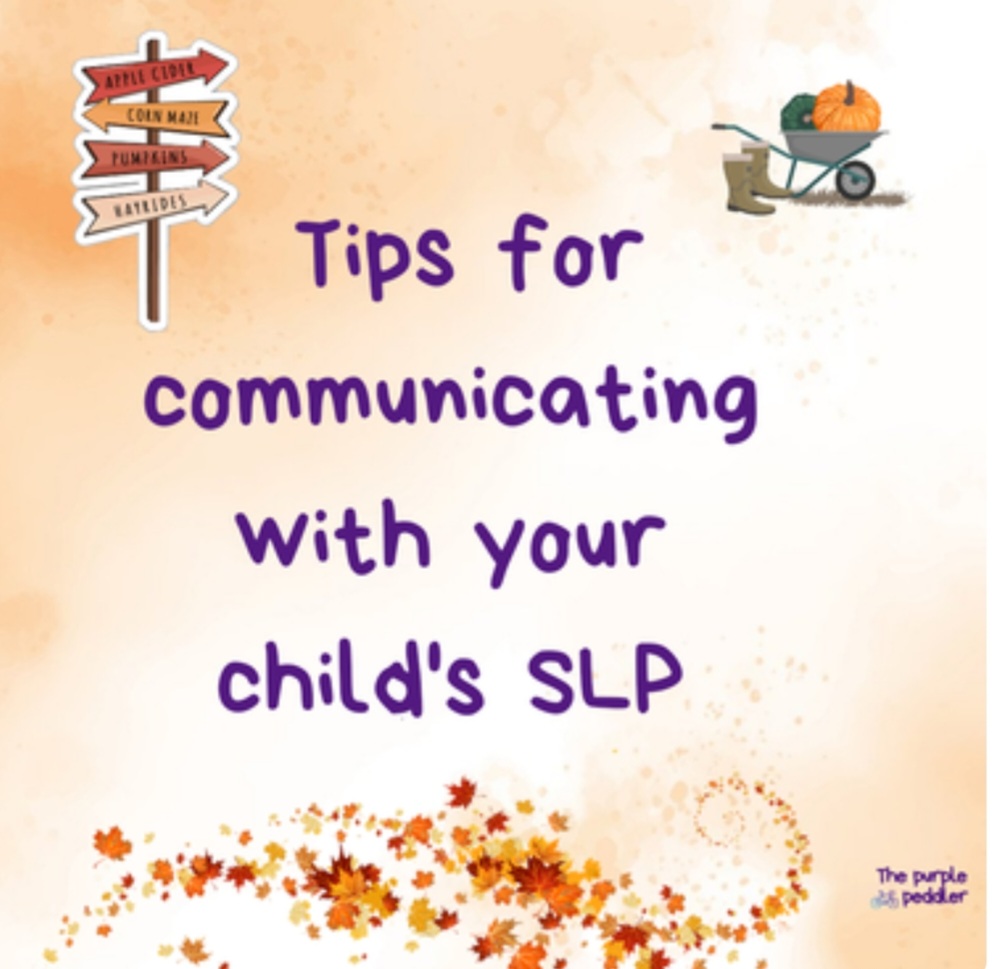Does your child receive speech and language therapy or do you have concerns about their speech development? Connecting with your child’s speech therapist is an important piece of the puzzle to helping your child make progress towards their goals!
First, what is a speech language pathologist/SLP/speech therapist/speech teacher and what is their role? SLPs are experts in communication and use their knowledge of speech and language development to help children learn to communicate more effectively. A master’s degree is required as well as continued professional development to keep up to date on their certification. Your child will be evaluated by an SLP and goals will be created to help them increase their communication skills.
Next, what is the role of a parent or caregiver? Parents are experts about their children! They know their child better than anyone-their likes and dislikes, their strengths and weaknesses and what motivates them. And this is important information for the SLP! They are also the people that spend the most time with their child so they have an important role in helping their child make progress towards their goals.
SLPs and parents working together is the best way to achieve these goals! Embedding speech and language practice throughout your child’s day is the fastest way for them to make progress. Here a few tips to help you to develop a good relationship with your child’s SLP.
1. Develop those goals together- the SLP will be able to provide information about what is developmentally appropriate, but don’t be afraid to share what is important to your family.
2. Ask questions- your speech therapist should be asking you questions to develop appropriate therapy activities and you should be asking questions to make sure that you understand why they are suggesting certain activities and how to complete those therapy activities.
3. Communication – parents and SLPs need to communicate so let your SLP know what your preference is (text, phone call, email) and be sure to respond to their questions as they want to do everything they can to help your child. Speech therapy is an ongoing process and things can change over time. You are a team so celebrate those successes together and work together to figure out something new if what you are doing isn’t working.
4. Practice- your SLP will only spend 30 minutes to an hour a week with your child. They will work hard to teach new skills, but for your child to master those skills they will need practice. Your SLP should be able to provide you with fun ways for you to embed speech and language practice throughout your day- hopefully in ways that will be easy for busy moms and dads to do. Try to practice as much as possible and if it becomes too much talk with your SLP to let them know!
Want to connect? I love being an SLP and am here to help! https://www.facebook.com/TinaWilliamsSimplyFunIndependentConsultant/
or join my group https://www.facebook.com/groups/3311410002281605/
Looking for additional ideas on how to embed speech and language skills development into everyday activities? Join my email list for my monthly newsletter!
https://forms.aweber.com/form/67/1854092667.htm

